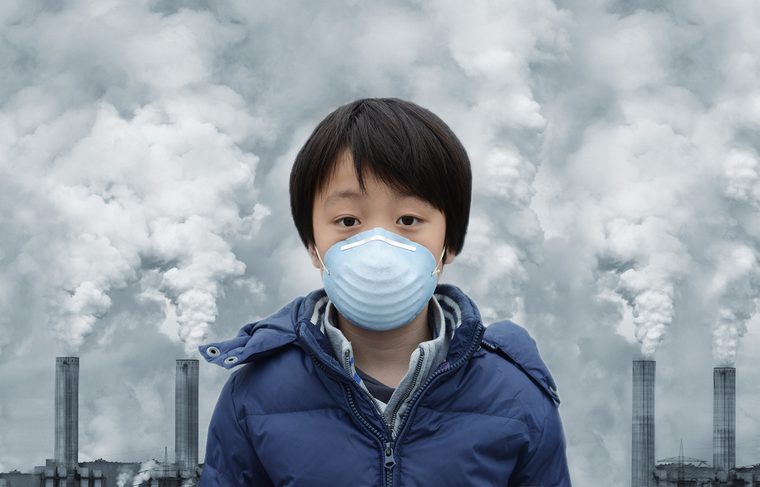
Raises the risk of autism
Pregnant women who live in smog-filled areas may be twice as likely to have children with autism, nationwide research suggests. Don’t hit the panic button just yet, as these findings are far from definitive. Exactly how, or even if, air pollution affects the developing brain remains unknown. This association was strongest when the exposure occurred during the third trimester of pregnancy, and the greater the exposure, the greater the risk, the study found. Watch out for these items in your own home that are poisoning your air.

Damages your heart and lungs
New research out of Duke University shows that exposure to air pollution on city streets may counter the beneficial health effects of exercise in adults older than 60. Specifically, short-term exposure to traffic exhaust on a busy street can cancel out the positive effects that two-hour stroll would otherwise have on the heart and lungs.
“This adds to the growing body of evidence showing the negative cardiovascular and respiratory impacts of even a short, two-hour exposure to motor traffic pollution,” says Junfeng “Jim” Zhang, professor of global and environmental health at Duke, in a news release. “It highlights the need for stricter air quality limits and better traffic-control measures in our cities.” To arrive at their findings, researchers recruited 119 volunteers over the age of 60 who were either healthy, had stable chronic obstructive pulmonary disease (COPD), or stable heart disease. Study participants walked for two hours midday at one of two London locations: in a relatively quiet part of Hyde Park, or along a busy section of Oxford Street where pollution tends to exceed air quality limits set by the World Health Organization. The researchers measured each volunteer’s lung capacity, blood pressure, blood flow, and arterial stiffness before and after the walk.
The Hyde Park walkers did much better within the first hour—volunteers’ lung capacity improved significantly and it lasted for more than 24 hours in many cases. By comparison, the group strolling along polluted Oxford Street benefited very little during at first, and experienced no benefits later. What’s more, walking in Hyde Park eased arterial stiffness in the volunteers by as much as 24 percent; walking along Oxford Street yielded much smaller gains—about 16 percent at most. If you want to reduce your air-pollution exposure, try these hacks when you exercise.

Lowers fertility in men
Uh oh is right. A new study shows that air pollution has been linked to poorer sperm quality. “Our next step is to study if pollution is directly associated with infertility,” says lead study author Xiang Qian, PhD, an assistant professor at the Jockey Club School of Public Health and Primary Care at the Chinese University of Hong Kong. Qian and colleagues analyzed sperm from 6,475 men aged 15 to 49 years, and found that men who breathed in more pollution were more likely to have abnormally shaped and smaller sperm. Of note, these men had more sperm than their counterparts who were not exposed to high labels of particulate matter, but it was of poorer quality. “We speculate this might be due to the compensation mechanism, but pollution is associated with lower normal sperm,” Qian says. (Want cleaner air? You should consider using an air purifier.)
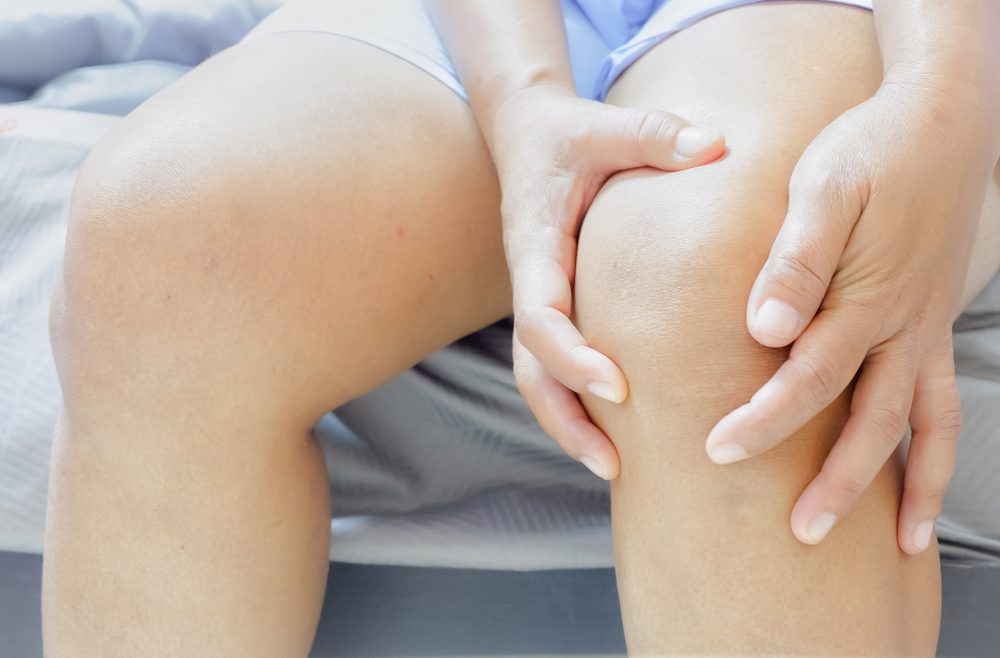
Weakens bones
Pollution in the air may increase the risk for osteoporosis and related fractures, according to research in the journal The Lancet Planetary Health. It doesn’t take much either. Even a small increase in levels of an airborne particle called PM2.5—sources include car exhaust, wood smoke, and power plant emissions—may lead to an increase in bone fractures in older adults. What’s more, this risk was greatest in low-income communities, the study found. Participants living in areas with higher levels of PM2.5 and black carbon, a component of air pollution from automotive emissions, had lower levels of a key bone-related hormone called parathyroid hormone or PTH. They also had more porous bones than people exposed to lower levels of these pollutants. Exactly how pollution can lead to bone loss is not completely clear, but it is similar to what has been observed with smoking. Here are some more everyday habits you didn’t realize were affecting your bone health.
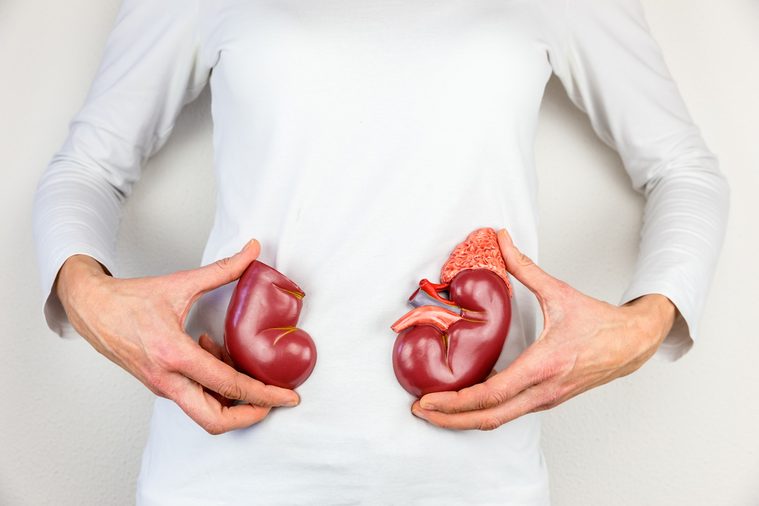
Harms kidneys
You’d be surprised how air pollution can affect organs other than your lungs, like your kidneys. Where you live may also play a role: Researchers at Washington University School of Medicine in St. Louis and the Veterans Affairs (VA) St. Louis Health Care System culled national VA databases to evaluate the effects of air pollution and kidney disease on nearly 2.5 million people over a period of 8.5 years, beginning in 2004. They compared data on kidney function to air-quality levels collected by the Environmental Protection Agency (EPA) as well as the National Aeronautics and Space Administration (NASA).
The researchers discovered a link: They identified 44,793 cases of kidney disease and 2,438 cases of kidney failure that could be tied to levels of air pollution that had exceeded the EPA’s threshold. (The study appears in the Journal of the American Society of Nephrology.) How could bad air harm your kidneys? Microscopic particles of pollution can enter the bloodstream; since the kidneys main task is to filter the blood, the organ ends up collecting loads of pollutant particles. “The higher the levels of air pollution, the worse it is for the kidneys,” says study author Ziyad Al-Aly, MD, assistant professor of medicine at Washington University and the VA’s director of clinical epidemiology, in a news release. “However, no level is completely safe. Even at relatively low levels, there was a relationship between particulate matter concentrations below the EPA thresholds and kidney disease.” People living in Southern California and large regions of the South, Midwest, and Northeast were at the highest risk, the study showed. (Here’s everything you need to know about ozone air purifiers.)
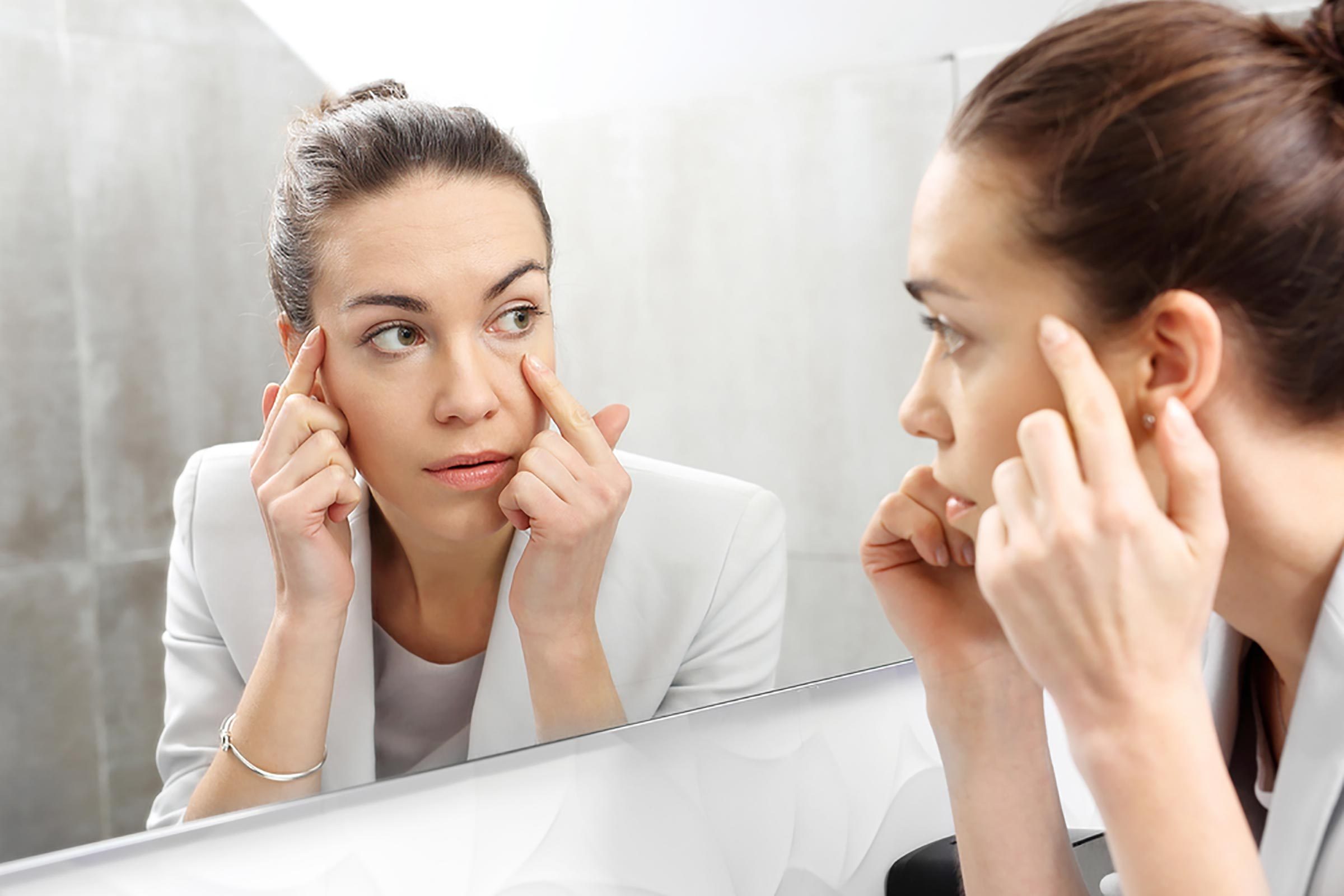
Ages skin
“There is a lot of data in places like China, where pollution is bad, that show it can cause pigmentation changes and accelerate aging of the skin,” says Adam Friedman, MD, associate professor of Dermatology and director of the Supportive Oncodermatology Clinic at George Washington School of Medicine and Health Sciences in Washington, DC. The substances in pollution damage skin cells and interfere with the skin’s ability to repair itself. The result is age spots, wrinkles, and loose folds, says Dr. Friedman.
Many sunscreens now include protective shields to help keep pollution from damaging skin, such as Glossier’s Daily sunscreen SPF 35, L’Oreal Dermo-Expertise UV Perfect 12H Longlasting UVA/UVB Protector, and Elizabeth Arden Prevage City Smart Broad Spectrum SPF 50 Hydrating Shield. But buyer beware (at least for now), Dr. Friedman says. “While we know that there is a connection, the question is what is best thing to use for protection.” Here are some other little habits that make you age faster.

Triggers headaches
While the data is less clear, says Brian M. Grosberg, MD, director of the Hartford Healthcare Headache Center in Hartford, Connecticut, there may be a connection: “It is very difficult to say with certainty if air pollution is causally related to headache or just has an association.” One study found increased hospital admissions for migraines and other headaches on days when air pollution readings were high. Keep a headache journal and see if you can find any patterns related to air-pollution levels or other triggers to stay ahead of yours.
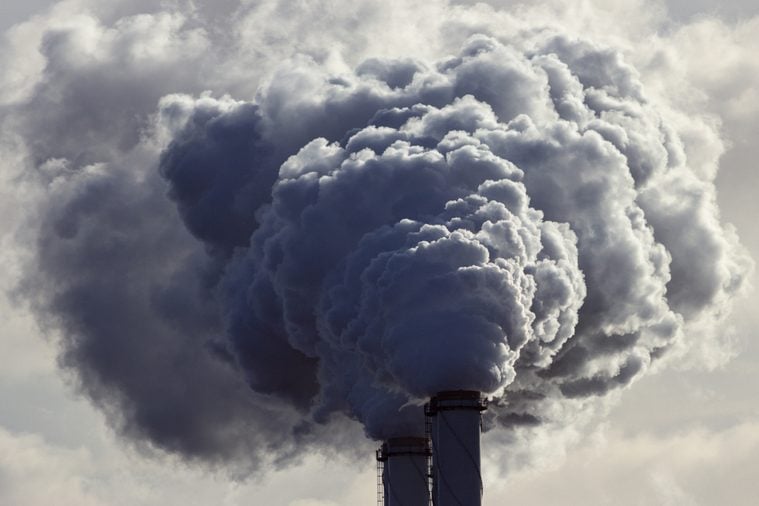
Causes lung disease
It makes sense: Pollution hits lungs the hardest. Fine particles are tiny enough to be inhaled deep into the lungs “We know exposure to high levels of ozone or PM pollution can worse lung function,” says Anthony N. Gerber, MD, PhD, a pulmonologist in the Division of Pulmonary, Critical Care and Sleep Medicine at National Jewish Health in Denver. “If you have existing decreased lung function from asthma or smoking-related lung disease, you can wind up in the ER, miss school, or need rescue medications more often on high pollution days.” If you have chronic lung disease, these 11 exercises can build up your lungs to help protect you on bad air days.
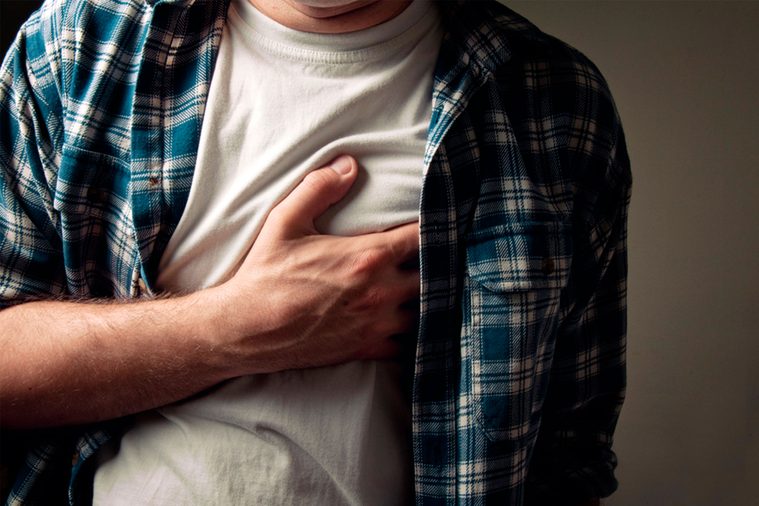
Raises risk of heart attack or stroke
Pollutants and your heart are a bad mix: “Pollution can induce inflammatory pathways within the lungs that can send signals out to the whole body, resulting in stroke or heart attack,” Dr. Gerber says. “We know rates of heart attack or stroke are higher on bad pollution days.” Masks don’t really work all that well, but tracking pollution can help you make better decisions about when to stay indoors. The EPA tracks air quality, so you can stay informed. If it is a high pollution day, maybe hit the gym instead of going for a run outside, he says. Also, take precautions to keep your indoor air clean by following these tips.
